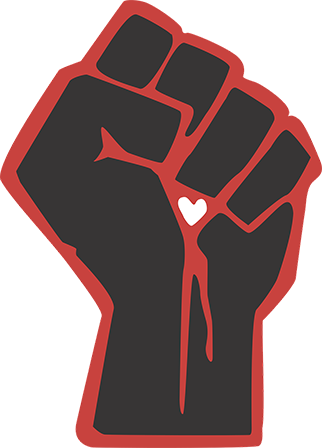
Black History Month in the United States typically marks the time of year when we celebrate some of the most notable figures of the 1960s Civil Rights Movement, such as Martin Luther King Jr. and Rosa Parks. Although we honor these individuals’ efforts to promote equality, the legacy of resistance embodied by the creation of Black History Month is often lost or blatantly disregarded in our retellings of this history.
It is important we acknowledge that the origins of Black History Month are deeply rooted in a steadfast fight for racial justice and the contributions of countless individuals.
 In 1976, President Gerald Ford declared Black History Month a nationally observed holiday period and asserted that “in celebrating Black History Month we can seize the opportunity to honor the too-often neglected accomplishments of black Americans in every area of endeavor throughout our history.”
In 1976, President Gerald Ford declared Black History Month a nationally observed holiday period and asserted that “in celebrating Black History Month we can seize the opportunity to honor the too-often neglected accomplishments of black Americans in every area of endeavor throughout our history.”
However, Black History Month was first observed 50 years before Ford’s national declaration. Carter G. Woodson, a Black Harvard scholar, and the prominent minister Jesse E. Moorland founded the Association for the Study of Negro Life and History (ASNLH) in 1915 and by 1926, began what was then called Negro History Week. Their goal was to designate the second week in February, which coincides with Frederick Douglass’ and Abraham Lincoln’s birthdays, as an educational opportunity to commemorate the achievements of African Americans.
Schools, colleges, universities and communities joined this effort, made more significant by the impact of Jim Crow laws and segregation. In the early 20th century, most U.S. schools were segregated along the lines of race. Even in schools designated for Black people, students were not taught about myriad ways Black Americans made vast contributions to U.S. society–from building the White House and other national monuments in Washington, D.C., to inventing dry-cleaning and constructing and staffing the U.S.’ most prominent railroad systems.
As celebrations spread, the demand for teaching materials and supplies increased. By the height of the 1960s Civil Rights Movement, grade school textbooks still only mentioned two Black people. Activists, educators and students embraced the significance of Negro History Week as a form of resistance to the whitewashing of history. Colleges and universities expanded Negro History Week into a monthlong celebration of Black History. Activists known as Freedom Riders, who organized and participated in the bus boycotts and sit-ins at segregated bus stations, also pressured states to desegregate their schools and incorporate Black history into the curriculum.
These activists, later called Freedom Fighters by some, developed Freedom Schools that took the educational focus of Black History Month and used it to create new schools for K-12 students to learn about Black history, protest principles and to practice mutual aid for the community. Black History Month grew from a weeklong awareness activity to a socio-political framework.
Since President Ford declared February as Black History Month, the celebration is honored throughout the U.S. in schools, the media, communities and businesses. In the 94 years since Woodson and Moorland founded Negro History Week, this time of commemoration is sometimes diluted to represent only the most well-known figures in African American history and is not honored for its role in Black resistance.
Black History Month has always been part of a fight for racial justice. It has always been a form of protesting the conditions that erased and diminished the cultural importance of Black communities. This Black History Month, as we continuously work to build a world where there is racial justice and equity, let us remember more than just a select few individuals and instead honor a community’s resilient commitment to social and political self-determination.
—Helen McDonald
This article posting is part of the Domestic and Sexual Violence Services' Volunteer Voices monthly newsletter for current and potential volunteers. If you're not already a volunteer, learn how to get involved. Find out about upcoming trainings, volunteer trainings, happenings around the DSVS office and information about articles, books, media recommendations and more.
Learn more about the Domestic and Sexual Violence Services (DSVS).

